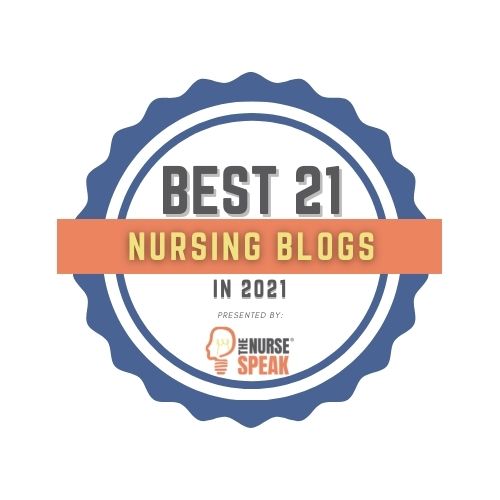
In nursing’s often fast-paced and stressful environment, workplace conflicts are certainly not a rare occurrence. Knowing how to deal with these conflicts and find swift resolution will help you in maintaining a professional, safe, and healthy environment for you and your patients.
Here are six simple strategies you can incorporate on the job to effectively handle the various workplace conflicts you may encounter in nursing:
Workplace conflicts require understanding before acting
Issues are often brought up as a one-sided story, influenced with subjective data like emotions or perceptions. Other times, the issues presented may be missing essential information, such as objective data that can paint a clearer picture of what actually happened.
Make sure you do your best to understand the entire situation before reacting. In many cases, getting the whole story will help alleviate the conflict immediately, as the problem can be more clearly identified and addressed appropriately.
Focus on the problem, validate the person
More times than not, workplace conflicts arise due to ill feelings caused by the inconsiderate actions of others. No matter what the cause of the issue, be sure to acknowledge the actual problem at hand, rather than the person. This will allow you to objectively assess the situation and make decisions regarding the next steps to take in resolving the issue.
While trying to see things objectively, it’s still important to validate the feelings of those involved. Letting people know they have a right to feel how they do lets them know you care about their happiness, which will help build stronger relationships and prevent workplace conflicts down the road.
Humanizing the issue can quickly ease tensions
Let’s face it—we all make mistakes, and we all have our bad days. Finding common ground with the individual(s) who are involved in workplace conflicts provides reassurance that they are not alone in dealing with the issue, and that they are not the first to experience this kind of situation.
By sharing similar experiences and how you have previously dealt with the issues can help bring a sense of normalcy to the issue and allow for a calm and composed approach to conflict resolution.
Solve the problem, not your feelings
Though it may be easy to get distracted by the actions of others, or to let emotions guide thoughts, it is essential that you focus your time and energy in finding a solution to the issue at hand. Otherwise, you can lose sight of the primary goal and unwittingly prolong workplace conflicts, only making yourself feel worse.
For example, if one of your fellow nurses yelled at you and displayed unprofessional behavior, do not focus on your feelings that are associated with their actions, but rather focus on how you can work with them on correcting this behavior. Be sure to identify why it is important to always remain professional in a chaotic environment, and see what you can do to help them ease their tensions.
Focus on the future, not the past
Rather than focusing on what went wrong or who should have done what, the secret to resolving workplace conflicts is identifying the desired outcome for all parties involved. By focusing on what all parties involved would like to achieve, you can avoid dwelling on the negative, and work quickly towards creating a positive workplace environment.
Say one of you fellow nurses criticized you in front of your patient, undermining your authority and causing you embarrassment. Dwelling on what was said or what your patient is thinking will only cause you to act defensively and exhaust your energy reserves rather than putting them towards helping your patient. Instead, pull your co-worker aside at a later time and ask that they should express any concerns or critiques in private.
Celebrate progress, not perfection
It’s not always easy to come to an agreement when workplace conflicts exist, especially when both parties feel like they had good intentions—but when you do come to an agreement with a coworker, it is important to celebrate them to encourage more of the same in the future and to reinforce the high levels of dedication and professionalism that are necessary to bring about nursing excellence.
A healthy workplace environment does not require perfection; it requires a shared sense of respect where everyone feels valued and able to express their concerns and work together to reach a solution. With this in mind, you will become less distraught or frazzled when conflicts arise, and instead be eager to find creative solutions that benefit all parties involved.
Remember that workplace conflicts are a normal part of working through tough situations, but if your workplace conflict looks more like bullying, then here’s another set of tips you should follow.
I hope that these simple strategies will help you and your colleagues quickly resolve workplace conflicts so that you and the rest of the healthcare team can focus on what’s most important – our patients!
Best Wishes!
-Damion














Great article! Nursing is such a stressful job and I think that at one time or another we all tend to personalize mistakes that other have made or feel that their actions are a personal assault. I like the idea of addressing the solution, not your feelings and to let go of past mistakes and move forward.
Thank you Sara for your kind words and for the validation! Yes, it is easy for us to get caught up in our emotions, so it is important that we take the time to address the problem and work towards a solution without letting our feelings guide our decisions. As nurses we often carry out tasks that make us feel uncomfortable, but it’s because it’s what is best for the patient, or because it is simply the patient’s wishes that we must respect. This should be easy for nurses, but unfortunately, it’s something that we must work on every single day.
Thanks again for your kind words and for adding to this discussion!
Best,
Damion
These are fantastic strategies! I like how you remind us to keep our emotions out of the problem resolution and to focus on the future, moving forward. Great tips, sharing with my nursing tribe!
Thank you Elizabeth for your kind words and for your willingness to share with your followers and colleagues!
Best,
Damion